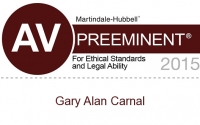Should You Create a Revocable Living Trust?
A trust is a common Florida estate planning tool that can help reduce the time and cost of administering your estate. While you might think a trust is only for wealthy individuals, in fact anyone with assets of any kind—such as a house—can benefit from the flexibility afforded by a trust. And even though the process of setting up a trust is relatively straightforward, there are still a number of things you need to know before creating one.
What Exactly Is a Trust?
In its simplest form, a trust is an agreement whereby Person A (the grantor) gives something of value to Person B (the trustee) for the benefit of Person C (the beneficiary). A trust is therefore a contract between the grantor and the trustee. The trustee is required to use any assets placed into the trust as specified in the trust agreement.
When we speak of a trust in the context of estate planning, we usually mean a revocable living trust. This is a trust created during the settlor’s lifetime. For example, if you wanted to create a revocable living trust, you would sign a trust agreement naming yourself as the trustee and beneficiary during your lifetime. In effect, you would manage your own assets through the trust. You would also name someone else to take over as trustee in the event of your incapacity or death. The trust would also specify how the successor trustee should manage or distribute the trust’s assets after your death.
What Are the Benefits of a Revocable Living Trust?
The main reason most people create a revocable living trust is to minimize the need for probate. Any assets in a trust at the time of your death are not considered part of your probate estate—that is, the trust assets do not pass under your last will and testament. This can greatly simplify the administration of your estate. It can also help protect your family’s privacy, as unlike wills, trusts are generally not a matter of public record.
Can I Change or Revoke a Trust?
As the name implies, a revocable living trust can be altered or revoked entirely during your lifetime. You can change individual terms of the trust—successor trustees, beneficiary designations, etc.—without creating a new trust; or you can simply revoke the trust altogether. Keep in mind, however, that revoking a trust will require you to re-title any assets placed in the trust in your individual name.
Can a Trust Be Irrevocable?
There are certain cases where assets should be placed in an irrevocable trust. This is usually done for tax or liability reasons. Assets placed in a revocable living trust are still considered your property for purposes of calculating federal estate taxes or enforcing creditor judgments. An irrevocable trust can shield those assets, but the trade-off is you cannot revoke or alter the trust once it is made. You also cannot serve as trustee of your own irrevocable trust.
Is a Trust Right for Me?
Creating a trust is a major decision. An experienced St. Petersburg estate planning attorney can review your situation and help you decide if a trust is right for you. Contact the offices of Carnal & Mansfield, P.A., today if you would like to speak with an attorney about your estate planning needs.







